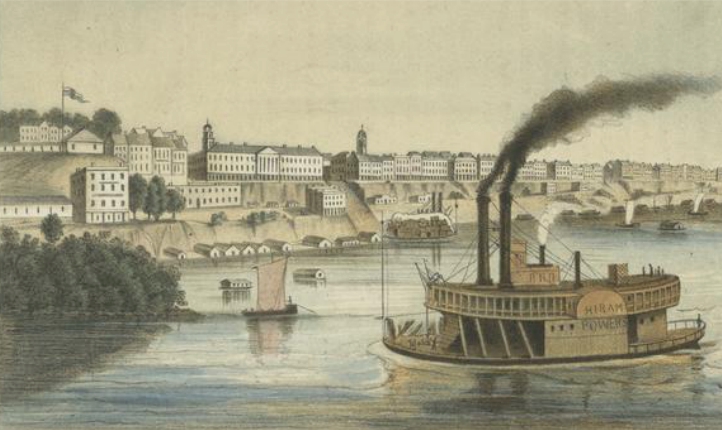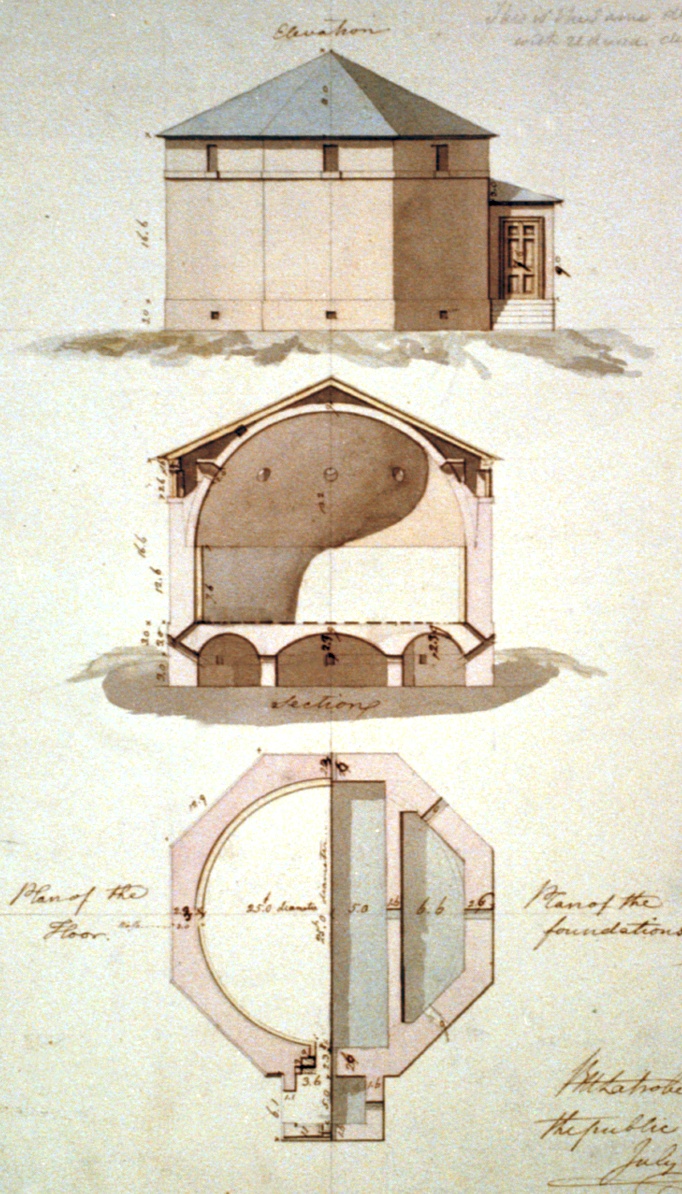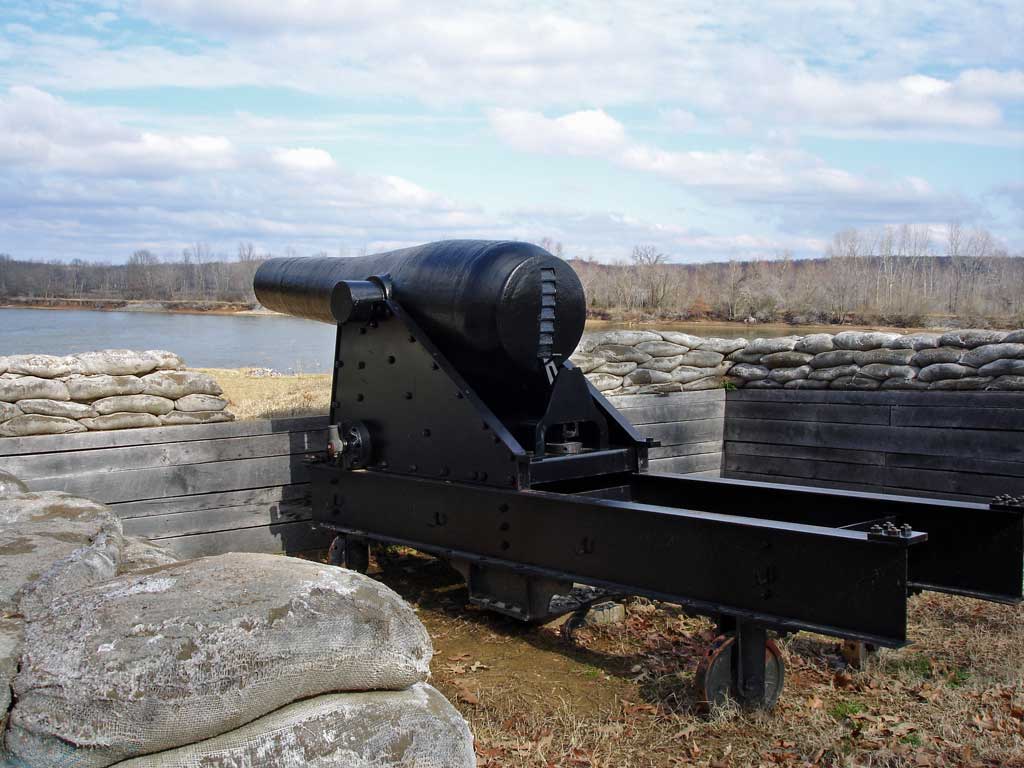|
Battle Of Arkansas Post (1863)
The Battle of Arkansas Post, also known as Battle of Fort Hindman, was fought from January 9 to 11, 1863, near the mouth of the Arkansas River at Arkansas Post, Arkansas, as part of the Vicksburg campaign, Vicksburg Campaign of the American Civil War. Confederate States of America, Confederate forces had constructed a fort known as Fort Hindman near Arkansas Post in late 1862. In December of that year, a Union (American Civil War), Union force under the command of Major-General William Tecumseh Sherman, William T. Sherman left for an expedition against Vicksburg, Mississippi, Vicksburg, without Major-General John Alexander McClernand, John A. McClernand because neither Major-Generals Henry Halleck nor Ulysses S. Grant trusted McClernand. After Sherman's force was repulsed at Battle of Chickasaw Bayou, Chickasaw Bayou, McClernand arrived and took command from Sherman in January 1863. McClernand led an expedition to capture Arkansas Post, despite disapproval from Grant. After arr ... [...More Info...] [...Related Items...] OR: [Wikipedia] [Google] [Baidu] |
Vicksburg Campaign
The Vicksburg campaign was a series of maneuvers and battles in the Western Theater of the American Civil War directed against Vicksburg, Mississippi, a fortress city that dominated the last Confederate-controlled section of the Mississippi River. The Union Army of the Tennessee under Major General Ulysses S. Grant gained control of the river by capturing this stronghold and defeating Lieutenant General John C. Pemberton's forces stationed there. The campaign consisted of many important naval operations, troop maneuvers, failed initiatives, and eleven distinct battles from December 26, 1862, to July 4, 1863. Military historians divide the campaign into two formal phases: operations against Vicksburg (December 1862 – January 1863) and Grant's operations against Vicksburg (March–July 1863). Grant initially planned a two-pronged approach in which half of his army, under Maj. Gen. William Tecumseh Sherman, would advance to the Yazoo River and attempt to reach Vic ... [...More Info...] [...Related Items...] OR: [Wikipedia] [Google] [Baidu] |
Ulysses S
Ulysses is one form of the Roman name for Odysseus, a hero in ancient Greek literature. Ulysses may also refer to: People * Ulysses (given name), including a list of people with this name Places in the United States * Ulysses, Kansas * Ulysses, Kentucky * Ulysses, Nebraska * Ulysses Township, Butler County, Nebraska * Ulysses, New York *Ulysses, Pennsylvania * Ulysses Township, Potter County, Pennsylvania Arts and entertainment Literature * "Ulysses" (poem), by Alfred Lord Tennyson * ''Ulysses'' (play), a 1705 play by Nicholas Rowe * ''Ulysses'', a 1902 play by Stephen Phillips * ''Ulysses'' (novel), by James Joyce * ''HMS Ulysses'' (novel), by Alistair Maclean * Ulysses (comics), two members of a fictional group in the Marvel Comics universe * Ulysses Klaue, a character in Marvel comic books * Ulysses: Jeanne d'Arc and the Alchemist Knight, a light novel Film and television * ''Ulysses'' (1954 film), starring Kirk Douglas based on the story of Homer's ''Odysse ... [...More Info...] [...Related Items...] OR: [Wikipedia] [Google] [Baidu] |
Memphis, Tennessee
Memphis is a city in the U.S. state of Tennessee. It is the seat of Shelby County in the southwest part of the state; it is situated along the Mississippi River. With a population of 633,104 at the 2020 U.S. census, Memphis is the second-most populous city in Tennessee, after Nashville. Memphis is the fifth-most populous city in the Southeast, the nation's 28th-largest overall, as well as the largest city bordering the Mississippi River. The Memphis metropolitan area includes West Tennessee and the greater Mid-South region, which includes portions of neighboring Arkansas, Mississippi and the Missouri Bootheel. One of the more historic and culturally significant cities of the Southern United States, Memphis has a wide variety of landscapes and distinct neighborhoods. The first European explorer to visit the area of present-day Memphis was Spanish conquistador Hernando de Soto in 1541. The high Chickasaw Bluffs protecting the location from the waters of the Mississipp ... [...More Info...] [...Related Items...] OR: [Wikipedia] [Google] [Baidu] |
Mississippi River
The Mississippi River is the second-longest river and chief river of the second-largest drainage system in North America, second only to the Hudson Bay drainage system. From its traditional source of Lake Itasca in northern Minnesota, it flows generally south for to the Mississippi River Delta in the Gulf of Mexico. With its many tributaries, the Mississippi's watershed drains all or parts of 32 U.S. states and two Canadian provinces between the Rocky and Appalachian mountains. The main stem is entirely within the United States; the total drainage basin is , of which only about one percent is in Canada. The Mississippi ranks as the thirteenth-largest river by discharge in the world. The river either borders or passes through the states of Minnesota, Wisconsin, Iowa, Illinois, Missouri, Kentucky, Tennessee, Arkansas, Mississippi, and Louisiana. Native Americans have lived along the Mississippi River and its tributaries for thousands of years. Most were hunter-ga ... [...More Info...] [...Related Items...] OR: [Wikipedia] [Google] [Baidu] |
Mississippi Central Railroad
Mississippi Central Railroad (reporting mark MSCI) is a short line railroad operating over 51 miles from Oxford, Mississippi, to Grand Junction, Tennessee, owned by Pioneer Railcorp. The railroad's principal commodities are wood products and fertilizer. The MSCI offers connections to the BNSF Railway in Holly Springs and Norfolk Southern Railway in Grand Junction. In 2013 the Mississippi Central purchased the Redmont Railway. In 2015 the Mississippi Central purchased the Tishomingo Railroad near Iuka, Mississippi. Early history (1852–1861) In 1852, the Mississippi Central Railroad was chartered by the Mississippi Legislature to build a railroad from Canton, Mississippi, to Grand Junction, Tennessee, financed by wealthy cotton planters in La Grange, TN, and Oxford, MS, passing through the towns of Grenada, Water Valley, Oxford and Holly Springs. The first passenger trains from Holly Springs to Oxford ran in 1857. Passenger service further south to Water Valley began ... [...More Info...] [...Related Items...] OR: [Wikipedia] [Google] [Baidu] |
Mississippi
Mississippi () is a state in the Southeastern region of the United States, bordered to the north by Tennessee; to the east by Alabama; to the south by the Gulf of Mexico; to the southwest by Louisiana; and to the northwest by Arkansas. Mississippi's western boundary is largely defined by the Mississippi River. Mississippi is the 32nd largest and 35th-most populous of the 50 U.S. states and has the lowest per-capita income in the United States. Jackson is both the state's capital and largest city. Greater Jackson is the state's most populous metropolitan area, with a population of 591,978 in 2020. On December 10, 1817, Mississippi became the 20th state admitted to the Union. By 1860, Mississippi was the nation's top cotton-producing state and slaves accounted for 55% of the state population. Mississippi declared its secession from the Union on January 9, 1861, and was one of the seven original Confederate States, which constituted the largest slaveholding states in t ... [...More Info...] [...Related Items...] OR: [Wikipedia] [Google] [Baidu] |
Trench (military)
A trench is a type of excavation or in the ground that is generally deeper than it is wide (as opposed to a wider gully, or ditch), and narrow compared with its length (as opposed to a simple hole or pit). In geology, trenches result from erosion by rivers or by geological movement of tectonic plates. In civil engineering, trenches are often created to install underground utilities such as gas, water, power and communication lines. In construction, trenches are dug for foundations of buildings, retaining walls and dams, and for cut-and-cover construction of tunnels. In archaeology, the "trench method" is used for searching and excavating ancient ruins or to dig into strata of sedimented material. In geotechnical engineering, trenches serve for locating faults and investigating deep soil properties. In trench warfare, soldiers occupy trenches to protect them against weapons fire. Trenches are dug by use of manual tools such as shovels and pickaxes, or by heavy equipment such a ... [...More Info...] [...Related Items...] OR: [Wikipedia] [Google] [Baidu] |
Gunpowder Magazine
A gunpowder magazine is a magazine (building) designed to store the explosive gunpowder in wooden barrels for safety. Gunpowder, until superseded, was a universal explosive used in the military and for civil engineering: both applications required storage magazines. Most magazines were purely functional and tended to be in remote and secure locations. They are the successor to the earlier powder towers and powder houses. In Australia Historic magazines were at the following locations, among others: *Jack's Magazine, Saltwater River, Victoria * Goat Island, Sydney *Spectacle Island (Port Jackson) *North Arm Powder Magazine *Dry Creek explosives depot In Canada There are magazines at: *Citadel Hill (Fort George) *Citadel of Quebec, Quebec City, Quebec *Parc de l'Esplanade, Quebec City, QuebecCole Island Esquimalt, British Columbia *Fort Lennox, Île-aux-Noix, Quebec *Fort William Historical Park, Thunder Bay, Ontario *Fort York, Toronto In Ireland Ballincollig, County Cork ... [...More Info...] [...Related Items...] OR: [Wikipedia] [Google] [Baidu] |
CSS Pontchartrain
CSS ''Pontchartrain'' was a gunboat that served in the Confederate States Navy during the American Civil War. Built in 1859 for passenger and cotton trade, she was purchased by the Confederates in October 1862. After seeing action against Union land positions during the campaigns for New Madrid, Missouri, and Island Number Ten, she was transferred to serve on the Arkansas River and the White River. In June 1862, two of her cannons were taken to a land fortification at St. Charles, Arkansas, where part of her crew saw action in the Battle of St. Charles while manning the guns. Her other cannons were then offloaded at Fort Hindman, where more of her crew were captured while fighting on land at the Battle of Arkansas Post in January 1863. ''Pontchartrain'' herself remained inactive at Little Rock, Arkansas, and was burned to prevent capture in September 1863 when the Confederates abandoned the city. Construction and characteristics In 1859, the side-wheel steamer ''Lizzie S ... [...More Info...] [...Related Items...] OR: [Wikipedia] [Google] [Baidu] |
Columbiad
The columbiad was a large-caliber, smoothbore, muzzle-loading cannon able to fire heavy projectiles at both high and low trajectory, trajectories. This feature enabled the columbiad to fire solid Round shot, shot or Shell (projectile), shell to long range of a projectile, ranges, making it an excellent seacoast defense weapon for its day. Invented by Colonel George Bomford, United States Army, in 1811, columbiads were used in seacoast defense in the United States, United States seacoast defense from the War of 1812 until the early years of the 20th century. Very few columbiads were used outside of the U.S. and Confederate Armies; nevertheless, the columbiad is considered by some as the inspiration for the later shell-only Paixhans gun, cannons developed by Frenchman Henri-Joseph Paixhans some 30 years later. History The first columbiads produced in 1811 had a diameter bore and fired a fifty-pound projectile. Although some Seacoast defense in the United States, Second System ... [...More Info...] [...Related Items...] OR: [Wikipedia] [Google] [Baidu] |
White River (Arkansas)
White River may refer to: Bodies of water Africa * Bakoy River, in West Africa, called the White River over a portion of its length Canada * White River (British Columbia) * White River (Vancouver Island), a river in the Discovery Passage–Johnstone Strait watersheds of British Columbia ** White River Provincial Park * White River (Nass River), a river in the Marcus Passage watershed of British Columbia * White River (Quebec) * White River (Yukon) The White River (french: Rivière Blanche) ( Hän: ''Tadzan ndek'') is a tributary about long, of the Yukon River in the U.S. state of Alaska and the Canadian territory of Yukon. The Alaska Highway [Baidu] |
(Map And Inset Ground) Plan Of The Fortification (Fort Hindman) At Post, Arkansas, Surrendered To The U
A map is a symbolic depiction emphasizing relationships between elements of some space, such as objects, regions, or themes. Many maps are static, fixed to paper or some other durable medium, while others are dynamic or interactive. Although most commonly used to depict geography, maps may represent any space, real or fictional, without regard to context or scale, such as in brain mapping, DNA mapping, or computer network topology mapping. The space being mapped may be two dimensional, such as the surface of the earth, three dimensional, such as the interior of the earth, or even more abstract spaces of any dimension, such as arise in modeling phenomena having many independent variables. Although the earliest maps known are of the heavens, geographic maps of territory have a very long tradition and exist from ancient times. The word "map" comes from the , wherein ''mappa'' meant 'napkin' or 'cloth' and ''mundi'' 'the world'. Thus, "map" became a shortened term referring to ... [...More Info...] [...Related Items...] OR: [Wikipedia] [Google] [Baidu] |







